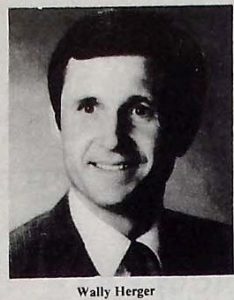
WASHINGTON, D.C: Northern California Congressman Wally Herger (R-Ca) today encouraged the Coast Guard to continue its “get tough” zero tolerance policy of enforcing federal drug laws at a congressional hearing on the issue.
Herger noted that “drug abuse is an epidemic which threatens not only the security of our nation, but the future of our children. It is a challenge which we must deal with courageously, decisively, and with conviction.”
Speaking at a hearing sponsored by the Coast Guard subcommittee of the Committee on Merchant Marine and Fisheries, Hergers said, “(zero tolerance) represents effective enforcement of our existing laws. Its purpose is simple: those who use illegal drugs, regardless of how often or how much, are contributors to the illegal drug trade. Without their demand, there could be no supply”.
Appearing at the hearing were Admiral Paul A. Yost, Jr., Commandant of the Coast Guard, and other senior Department of Transportation and Customs Service officials. Herger noted that a zero tolerance policy of seizure of vessels or automobiles and assured prosecution if federal officials encounter any traceable amount of narcotics has been successfully implemented by the U.S. attorney’s office in Southern California.
However, some opponents of the policy have focused attention on individual seizures of vessels since the policy has been implemented nationally which indicate innocent third parties may be opened up to financial hardship.
Herger expressed his concern for the welfare of commercial fishermen and other innocent third parties, and asked for a clarification of the policy on returning seized property to innocent owners. According to William von Raab, Commissioner of the Customs Service, the Customs Service attempts to complete their investigations expeditiously, so that owners of vessels who are found to have had no complicity in the drug violations have their vessels returned to them within ‘one to four weeks.
“The theory behind zero tolerance makes sense,” Herger said after the hearing. “Under this policy, the Coast Guard is simply enforcing laws that are already on the books. To say that this approach is too tough is to say that we should not enforce the law. I cannot agree with that. At what point do opponents of the zero tolerance policy believe we ought to begin enforcing the law? How many violations are they willing to tolerate before tough action is taken
Article extracted from this publication >> June 3, 1988